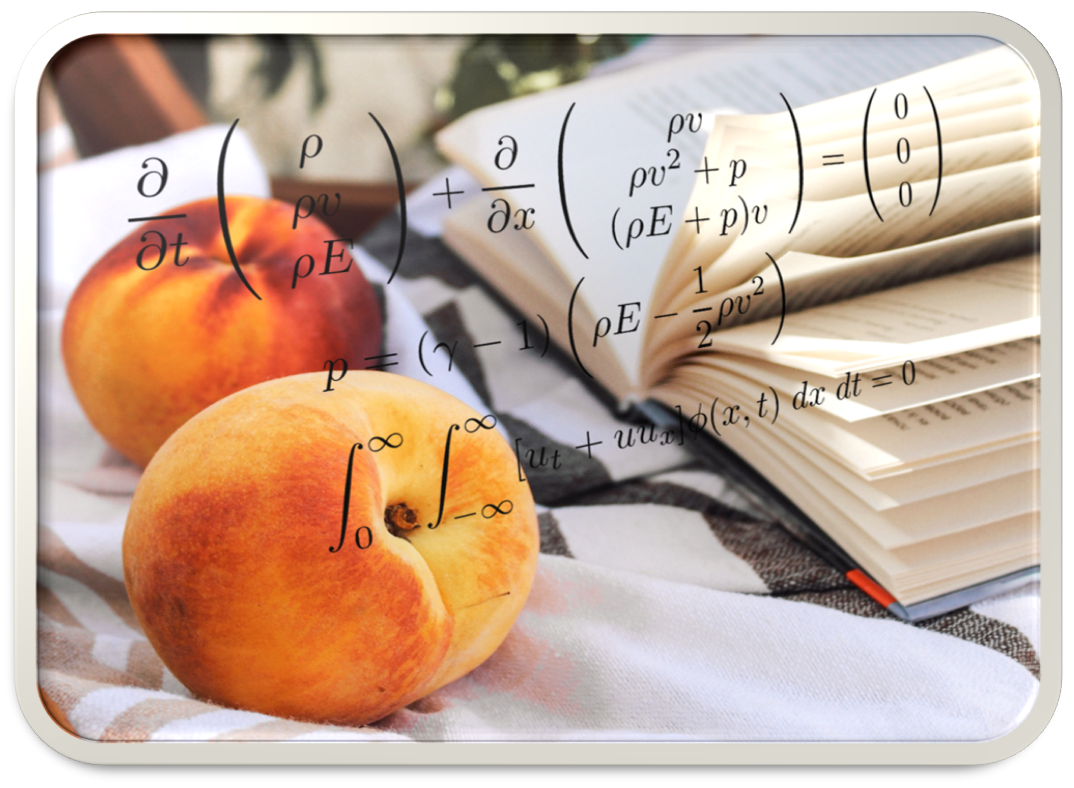Introduction to Wild Peaches
Welcome to Wild Peaches, a place to experiment with ideas in Science, Technology, Engineering, and Mathematics (STEM). Our goal is to encourage everyone to explore and have fun with concepts and experiments beyond the textbook level, but not so deep that you need to be a research scientist to understand them. Our ideas are “mind-sized”, meaning they are self-contained within a few paragraphs and aim to present new perspectives.
We recommend many excellent online sources for learning about math and physics, such as 3blue1brown, Dr Peyam, and Veritasium. Wild Peaches is different because we want you to apply mathematics to solving STEM problems and to play around with the ideas yourself.
Our Approach
Each experiment or exploration on Wild Peaches is self-contained, explained in a single article, or at most a handful of articles. These experiments are fully reproducible by anyone. All the code and data are saved in our GitHub repository, accessible for download. You should be able to run the code and recreate the experiment as described in the article. The software we use is free, and usually open-source.
By combining reports about each experiment with the code and any data, we hope to do for amateur scientists what organizations like the Open Science Foundation (OSF), the Center for Open Science (COS), and FOSTER do for professional scientists. Wild Peaches covers a broad range of STEM-related ideas.
Open publishing is a movement to make scientific research more accessible and transparent. As Seemay Chou argues in Scientific Publishing: Enough is Enough, journals are the problem. Scientists publish in journals to get credit, but it is an expensive, time consuming process which gives the illusion of truth and finality.
A better approach, she believes, is to collaborate and publish online which is the vision of Arcadia Science.
Arcadia Science is pushing the boundaries of open science and innovating at every step in the research,
development, and commercialization process.
At Wild Peaches, we are attempting to recreate the
same sense of community for citizen scientists.
Our Inspiration
In the early days of personal computers, David H. Ahl inspired many through his Creative Computing magazine, which encouraged students to learn programming techniques while solving interesting problems. Computers, software, and display graphics have greatly improved since then, but we aim to maintain the spirit of David Ahl’s creativity in problem-solving.
Join the Community
We encourage questions and corrections from readers, as we don’t have a formal review system for articles. Stuart Ritchie, a psychologist at King’s College, recently asked The big idea: should we get rid of the scientific paper? in The Guardian. We’re attempting to be Ritchie’s answer by being completely open, transparent, online, and easy to revise and correct.
Connect with Us
We have several ways to connect with readers and experimenters:
- Forum: Join the Wild Peaches Forum to find resources for experiments and discuss ideas in depth.
- Blog: Post your completed experiments on our blog, Wild Peaches, our informal science and math journal. We welcome submissions and offer editorial assistance.
- Facebook Group: Use the Wild Peaches Facebook Group to share new ideas or ask quick questions about STEM topics.
- Email: Send us an email if you have an experiment you’d like to publish.
Wild Peaches is not a peer-reviewed journal; the goal is to dive into STEM concepts and encourage collaboration and thinking about a wide spectrum of ideas.
Have fun exploring with Wild Peaches!

